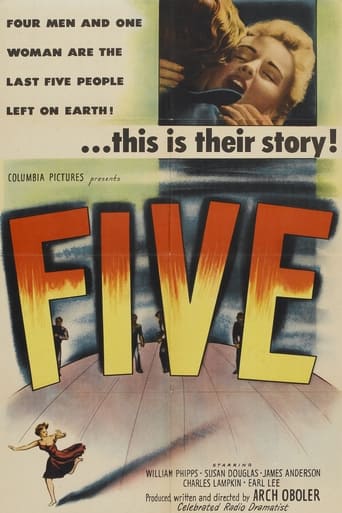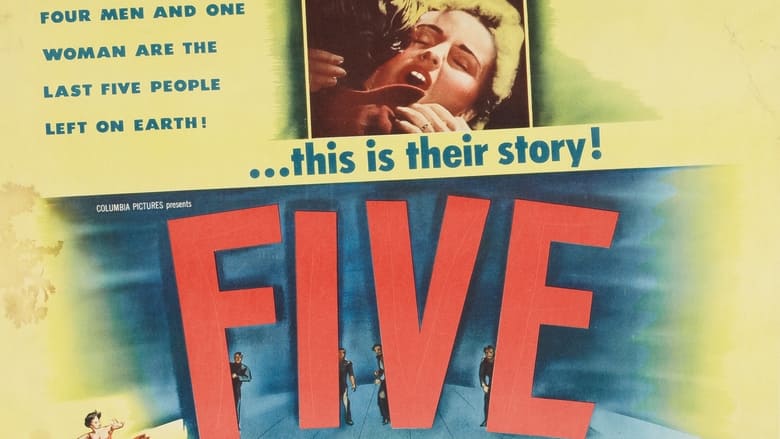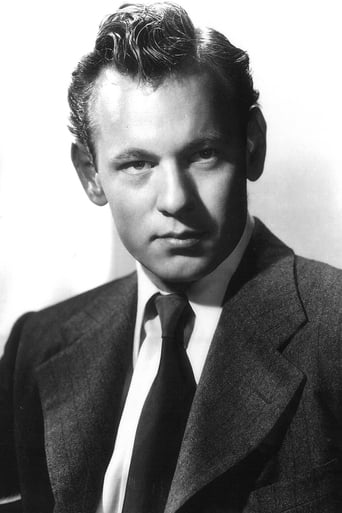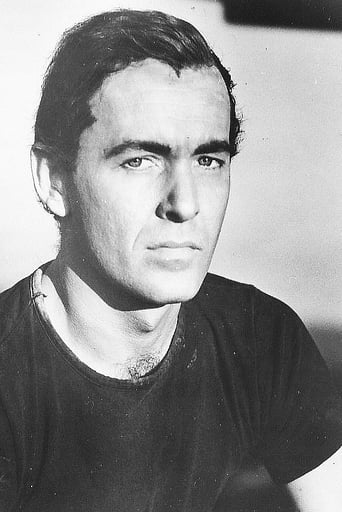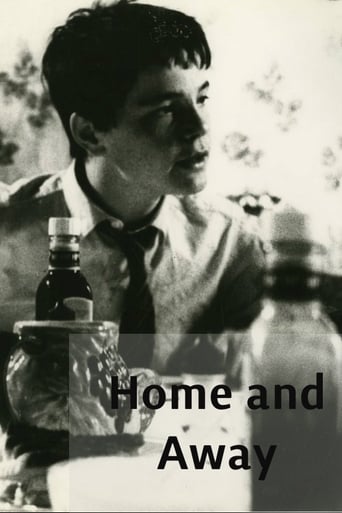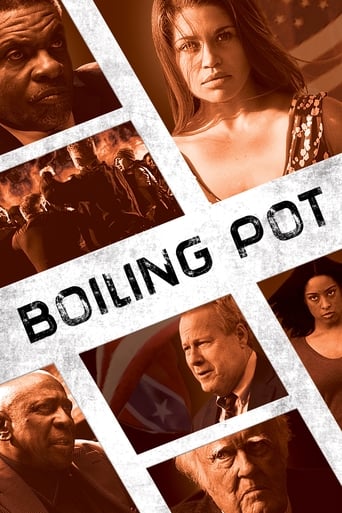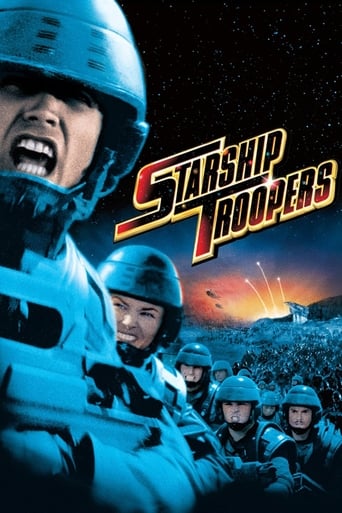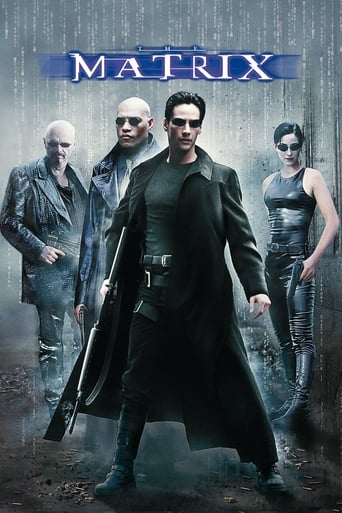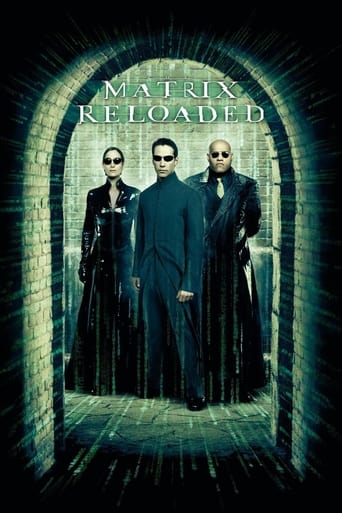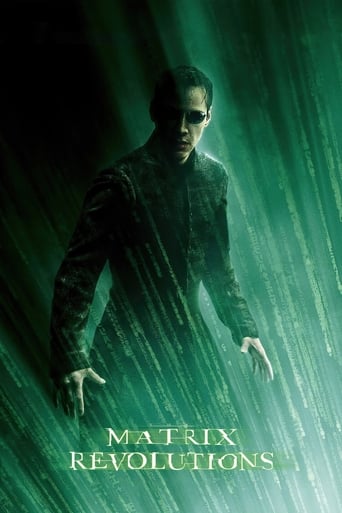Five (1951)
The film's storyline involves five survivors, one woman and four men, of an atomic bomb disaster. The five come together at a remote, isolated hillside house, where they try to figure out how to survive.
Watch Trailer
Cast


Similar titles
Reviews
Too much of everything
Very interesting film. Was caught on the premise when seeing the trailer but unsure as to what the outcome would be for the showing. As it turns out, it was a very good film.
A great movie, one of the best of this year. There was a bit of confusion at one point in the plot, but nothing serious.
It's a good bad... and worth a popcorn matinée. While it's easy to lament what could have been...
Probably the first post atomic apocalyptic film, made in 1951. This is a good film, not great, but a solid early science fiction flick- this one is different in the sense that there are no monsters or dangerous marauders- there are just five survivors who must deal with each other, with dramatic results. This is a tale of major interpersonal conflict, a small group trying to cope with the aftermath of some sort of nuclear catastrophe.The plot is a bit thin, the characters are a bit one dimensional and get involved in maybe too many mundane activities, yet this is a taut story that keeps you guessing what the end will be...against a lovely outdoors backdrop and memorable vistas, the expected sometimes never happens, a testament to the directors talents. Overall, the film 'works' but I wish certain avenues could have been explored that were shunned in this effort- but for a low budget, about $75,000, this one punches above its weight category. 5.9 stars.A home designed by Frank Loyd Wright is featured, this was owned by the director.
An anonymous woman traipses from place to place, searching for any sign of civilization in the aftermath of nuclear devastation. Upon reaching a hillside house she finds another survivor, Michael Rogin. After some initial shock, she introduces herself as Roseanne Rogers and explains that the hillside house was her aunt's. He was trapped in an elevator on the Empire State Building, while she was being X-rayed in a lead-lined room. They soon become friends, though Roseanne resists Michael's attempts at intimacy, revealing that she is pregnant. Soon enough, the smoke from the fire Michael lights beckons fellow travellers Charles and Mr Oliver P Barnstaple, who were fortunate enough to be locked in a bank vault when the bomb detonated. The picture moves along languidly as our 'five' of sorts live off the land.Skeletons slouching against the door jambs of cars; ghost-town church bulletins urging Sin_ers to R_pent and evocative shots of lonely landscapes: yes, they were all here first in inglorious monochrome way back in 1951. Although later entries in the genre would offer fighter jets, radioactive mutants and Red-baiting gun-toting American heroes, Arch Oboler's seminal black-and-white feature has an eerie atmosphere and a far more believable form of threat.When the delusional Barnstaple (who believed he was on holiday) passes away peacefully on the beach, the balance is immediately restored by Eric, who washes ashore after his plane crashed at sea on the flight back from a climbing expedition on Mt Everest. He soon reveals his disdain for their communal lifestyle and discomfort in living with Charles, an African-American. After he drives their jeep through the crop they had cultivated, Michael orders Eric to leave but he pulls a pistol on him, telling him he'll leave when he's ready to. Meanwhile, Roseanne gives birth to her baby, a boy. One night, Eric kills Charles when he stops him for stealing supplies. He offers to drive Roseanne into the city where she can discover her husband's fate and, unable to resist, she accompanies him. After finding what remains of her husband, she returns to the jeep to find that Eric has used the day out to loot jewellery. She tries to return to the group but he refuses to let her go. A struggle ensues, whereupon his shirt is torn open, revealing radiation sores all over him. He runs away despondently.Roseanne's baby dies in her arms on the long walk back but Michael finds her, and they return home to replant their crops and begin life anew. Collectivism as expressed in the Bible is celebrated here as the aboriginal and final stage of human development. As Charles soliloquizes, "And God stepped out on space, and He looked around and said "I'm lonely --I'll make me a world." James Weldon Johnson's The Creation assumes an altogether different subtext in a nuclear holocaust. Has the Judeo-Christian God punished them or abandoned them due to boredom? It is a tragic ending, for if Michael and Roseanne are the Adam and Eve of the end times, then any children they may conceive will be the last (with two eyes/ears etc).It's surprising that Arch Oboler avoided the Hollywood blacklist given that his movie is so discernibly Red. Charles Lampkin portrays the first intelligent African-American character in Hollywood history, and not in an unconscious way. They all subsist happily in their commune until the gun-pointing racist with the German accent arrives, representing the fascist enemy he sought to destroy entirely in his wartime propaganda films. For him, 1951 wasn't too late to drop Henry Luce's vision of the 20th century for Henry Wallace's. It's no wonder he had to finance the film out of pocket considering the tone, and a shame it received such a limited distribution. Arch Oboler would go on to break new ground with the first 3D colour feature 'Bwana Devil' and 'The Bubble', the first to use the more economical Space-Vision 3D system. But never again would he reach the zenith of 'Five'.
I just sat through 90min of this movie & have come to the conclusion that eating broken glass with mayonnaise would be more pleasant.The sluggish, lethargic plot is AWFUL...I wouldn't know where to begin. Lack of realism infests this movie on many levels. The explanations as to why each character survived the atomic holocaust are paltry as well as unscientific.Anytime a movie begins & ends with a biblical quote, beware! The only reason I gave this awful movie 3 out of 10 stars is because it was shot very well, and the sound is good but the story is excruciating.It's a rare movie that needs to stay rare...sorry.
Dismissable as post—apocalyptic goofiness from the 'duck and cover' age, when the Hiroshima memories and the Cold War with the soviets made people think about the nuclear threat and dream about possibilities of survival in a post—nuclear wasteland, FIVE, by Arch Oboler, has chosen the resources of a dramatic poem, resounding with over—the—top rhetoric in the beginning (but quickly reaching a genuinely lyrical level at times, and a dramatic note), over those of the paranoiac thriller, and is, in many ways, a very rewarding melodrama; I think it's a charming and interesting Sci Fi, neat, humane in its fairness, thickly sentimental, unusual and surely better written than the lowbrow post—apocalyptic exploitation, rewarding for the connoisseurs of old genre flicks, I liked the actress (Susan Douglas) and the cinematography, the exciting if conventional diversity of the assembled characters, the attempt at dealing with the harshness, but also a certain mildness at times. FIVE is enjoyable as an attempt to reformulate, in the genre movies' syntax, the sadness, the lyricism, the shock of suddenly finding oneself in a deserted world, it does a bit of psychology, and is an auteur work (I do not know who this Arch Oboler was, but I like his ambition of giving a respectable face to a genre); which doesn't make it less goofy and more Tarkovsky, but nonetheless gives it a peculiar place.Regarding the style, FIVE illustrates the expressionism of the 'duck and cover' ads and of the pacifist propaganda. It is loud, dramatic, sharp, fast, overstated.Anyway, Roseanne's idea of taking the baby with her in her quest and exposing him to the high levels of radiation in the city seems less happy; it also seems strange to me that none of these scriptwriters realizes that with all the engines and generators and machines that will not slow down by themselves and none's around to turn them off, the cities would soon explode, blow, etc.. All the engines and machines that work would need someone to turn them off; otherwise, all kinds of accidents would occur. In the same way, the food will not simply be stored; because this storage would be disturbed to.So, the nuclear blasts would not simply freeze the world, as in a crystal ball. The engines would go on working till they break and produce accidents; the cities would quickly become uninhabitable, and sources of a second wave of catastrophes. In these post—apocalyptic stories, the world seems to freeze, to hibernate, to get into some kind of cryogenic existence, preserved from all further destruction and deterioration. But why? The chaos of the engines would soon follow; all the engines working at the moment of the nuclear blast would continue to work—till random breakdowns and accidents would produce a string of urban destructions. The trains that none would stop, the cars, the power generators, etc..A world suddenly, instantly deserted by all its inhabitants would be like a motor speeding with no driver; who says that motor would quickly slow down and all motion fade? On the contrary —a disaster would soon follow.In these movies, the scriptwriters believe that all engines and motors and machines would simply stop, causing no harm.And if you, fair reader, will ever write a post—apocalyptic story, either for print or screen, take my word of advice, think about all the harm the unstopped engines would produce—and also credit that Romanian Sci Fi fan for having given you the idea.And why not think also about Crusoe, the primeval couple (in fact, 'Charles' says the story of the Genesis), the Flood and, since we live in the age of the TV series, when most of the people feel compelled to watch as many TV rubbish as possible, about LOST?

